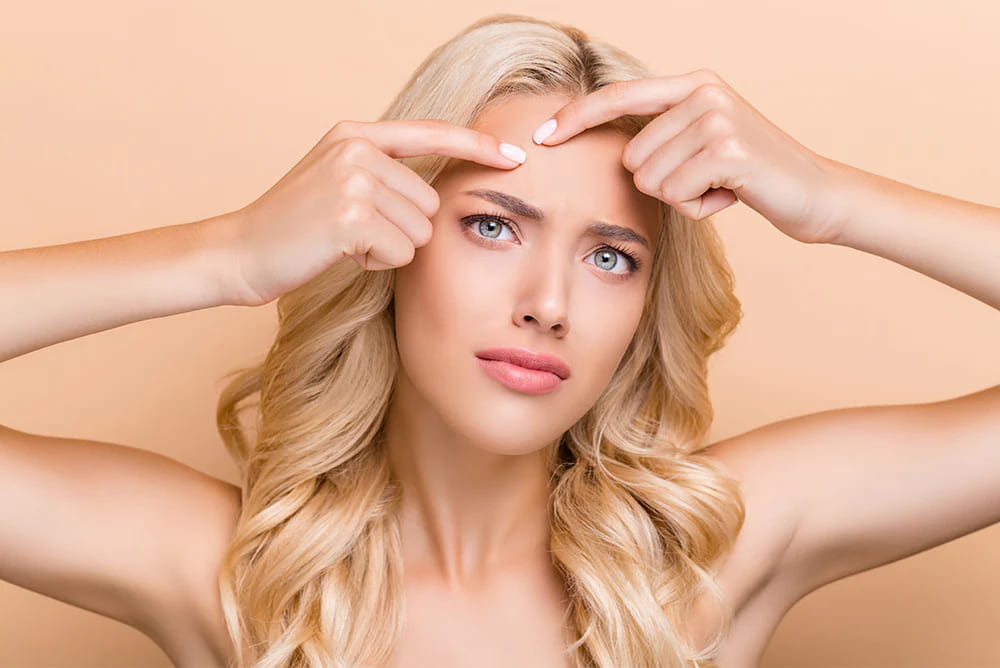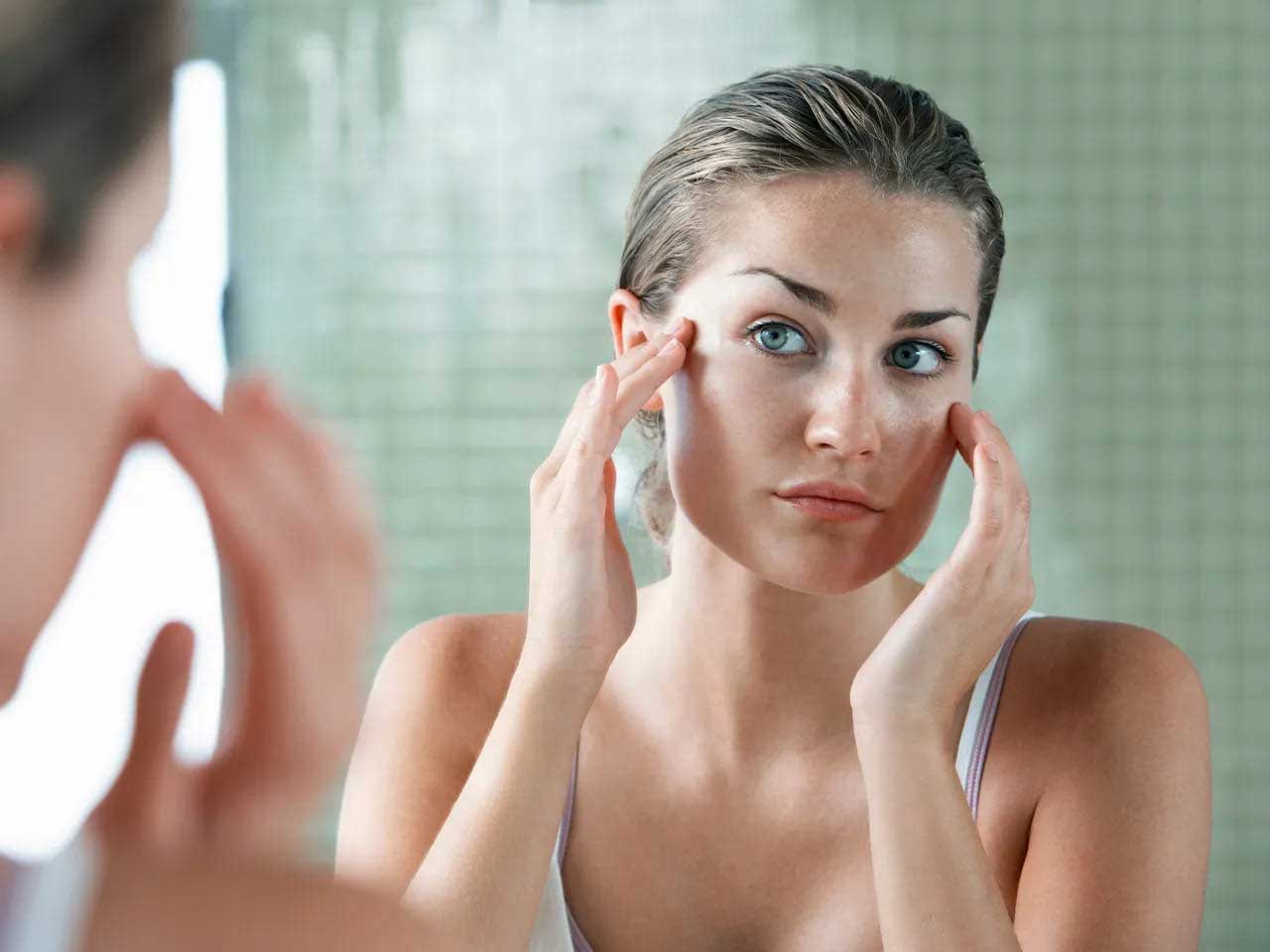Natural Ways To Treat Acne Prone Skin
Acne can happen at any age. Acne blocks your skin follicles with oil and dead skin cells. It is caused by a genetic tendency for oily skin and closed pores. The blockage keeps sebum (natural oils produced by the body) from exiting the pores, which nourishes and feeds bacteria (Propionibacterium acnes, or P. acnes) that are trapped in the follicle. In response, your body sends white blood cells to fight the bacteria, which results in inflammation.
Many factors are responsible for the development of acne such as genetics, diet, stress, hormonal changes, and infections. Let’s discuss how to soothe sore acne.Simple daily habits make your skin clearer and more comfortable.
Hydrate your skin :- Dehydrated skin causes inflammation and discomfort. Thirsty skin indicates that the skin barrier is damaged, which means the skin is unable to protect itself from pollutants, ultraviolet rays, and stress. Products with ceramides and hyaluronic acid absorb water and keep skin hydrated. Drinking adequate water balances the water content and oil on the skin.
Don’t pop your pimples :- We pop the pimples when pimples appear. But by doing so, that area becomes more inflamed, which extends healing time and increases the risk of scarring.
Take care of your skin :- Clean your skin twice a day. Gentle cleansers with or without active ingredients are helpful to decrease any irritation caused by acne treatments. A once or twice-weekly exfoliating cleanser should be used.

Active ingredients :- Choose active ingredients according to acne and skin type. Use cleansers that contain one of the following ingredients :
- Benzoyl peroxide
- Salicylic acid
- Adapalene
- Retinol
Don’t over-exfoliate :- Abrasive physical scrubs can create micro-tears on the skin's surface, allowing more acne-causing bacteria to enter. Use leave-on chemical exfoliant with AHAs to gently dissolve pore-clogging dead skin cells. Don’t exfoliate if you experience irritation.
Use lukewarm water :- Using too hot water can cause redness and dehydration. Keep water lukewarm to help protect the health of your skin.
Take extra care in summer :- Acne develops in hot, humid weather, so be extra cautious during the summer months. Regular SPF usage protects the skin and reduces redness and irritation.
Be Patient :- You won’t see results of acne treatments, including retinoids, for the first eight to twelve weeks. Don’t give up, stay consistent with your skincare routine.
Less is more :- Don’t use too many products at once. Adding more products to your routine will make it more complicated, and you are less likely to follow through with it.
Don’t wear heavy makeup :- In fact, oil-based and heavy makeup can clog pores and cause acne. Additionally, these products restrict your skin's ability to breathe. If possible, wear no makeup or use a mineral-based foundation and concealer that doesn’t contain additional oils. The natural ingredient is less likely to clog your pores and won't irritate your skin or increase inflammation.
Remove makeup at bedtime :- Removing makeup with ph-neutral soap and water will unblock your pores allowing your skin to breathe.
Exercise :- Although more research is needed, exercise has a positive impact on the body in ways that could help reduce acne. Exercise decreases stress and anxiety which results in acne.
Reduce stress :- Stress may cause you to pick at spots on your face more often, which increases acne. Hormones released during stress increase inflammation and sebum production which makes acne worse.
Various ways and treatments are there to get rid of acne. But one medication may only be suitable for some. Contact Allaymeds and we will create your unique dermatology compounding medication.

At-home remedies for acne-prone skin
Apple cider vinegar(ACV) :- If you can’t use alcohol-based toner, you can try diluted ACV tonic which is a natural astringent. It restores balance to the skin surface and kills bacteria on the skin surface. According to 2017 research, acne scars become less visible with apple cider vinegar’s lactic acid. While apple cider vinegar’s certain component reduces acne, no evidence supports its use for this purpose. Some dermatologists suggest avoiding apple cider vinegar as it may irritate the skin.
Tea tree oil :- A 2018 study suggests tea tree oil is useful in reducing acne. Because of its bacteria-zapping and inflammatory properties, it is used as an acne-fighting ingredient. Mix tea tree oil and water in a ratio of 1:9 and apply it to the affected area. If needed apply moisturizer.
Green tea :- Green tea is rich in antioxidants. Its bacteria-fighting and anti-inflammatory properties are helpful in treating and preventing acne. Steep green tea in boiling water for a few minutes and let it cool. Apply it to your skin with cotton. Later, wash it with water.
Aloe vera :- It soothes aggravated skin and reduces inflamed pimples. It contains sulfur and salicylic acid, both incredibly effective at treating acne. Apply aloe vera gel directly to clean the skin.
Honey :- Because of its antibacterial properties, honey is good for acne. Also, it dries water content in the pore lining where acne-causing bacteria can’t survive.
